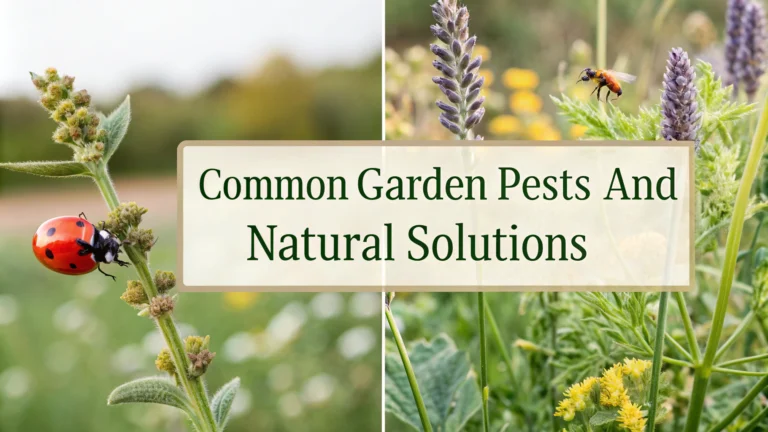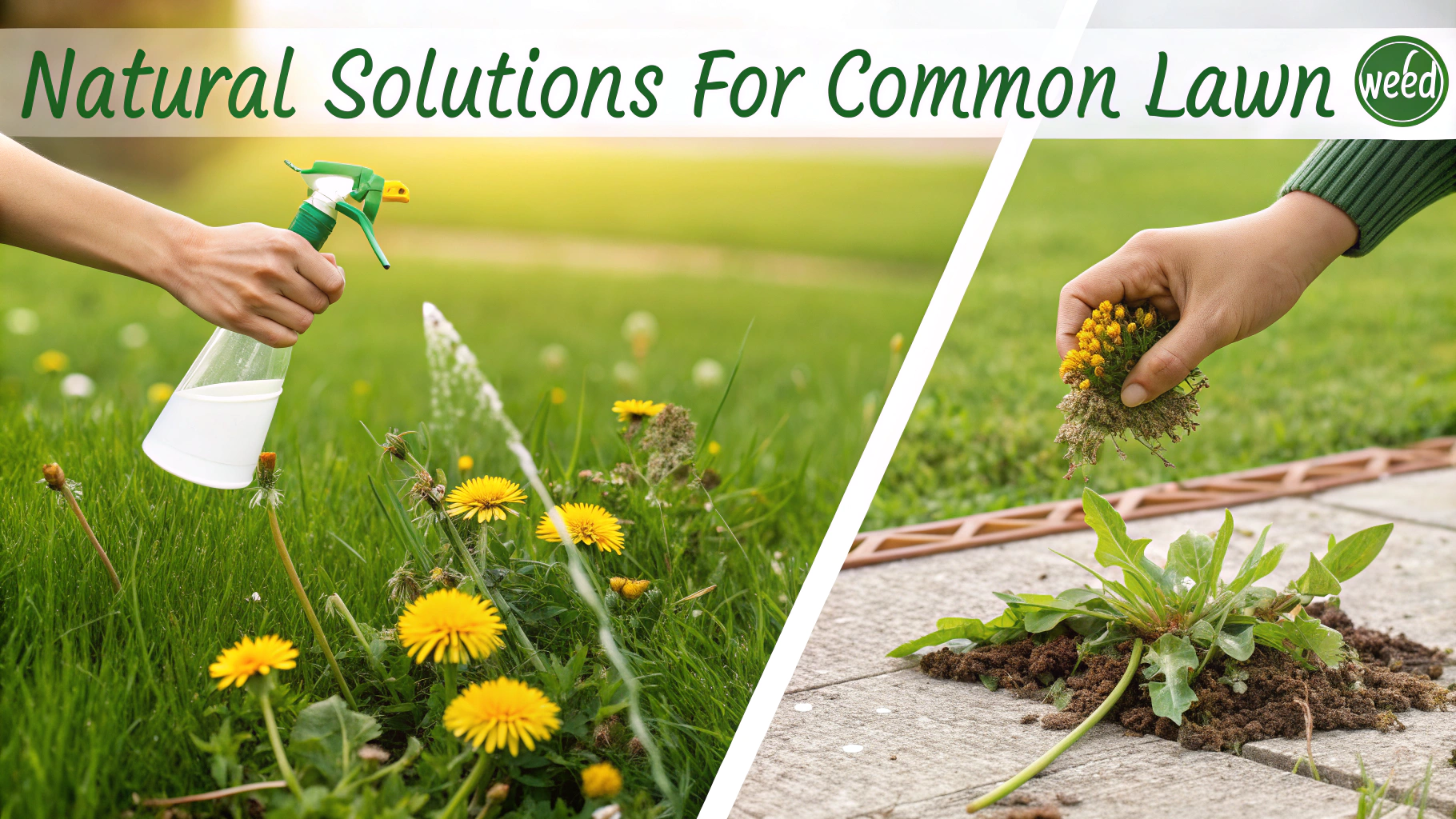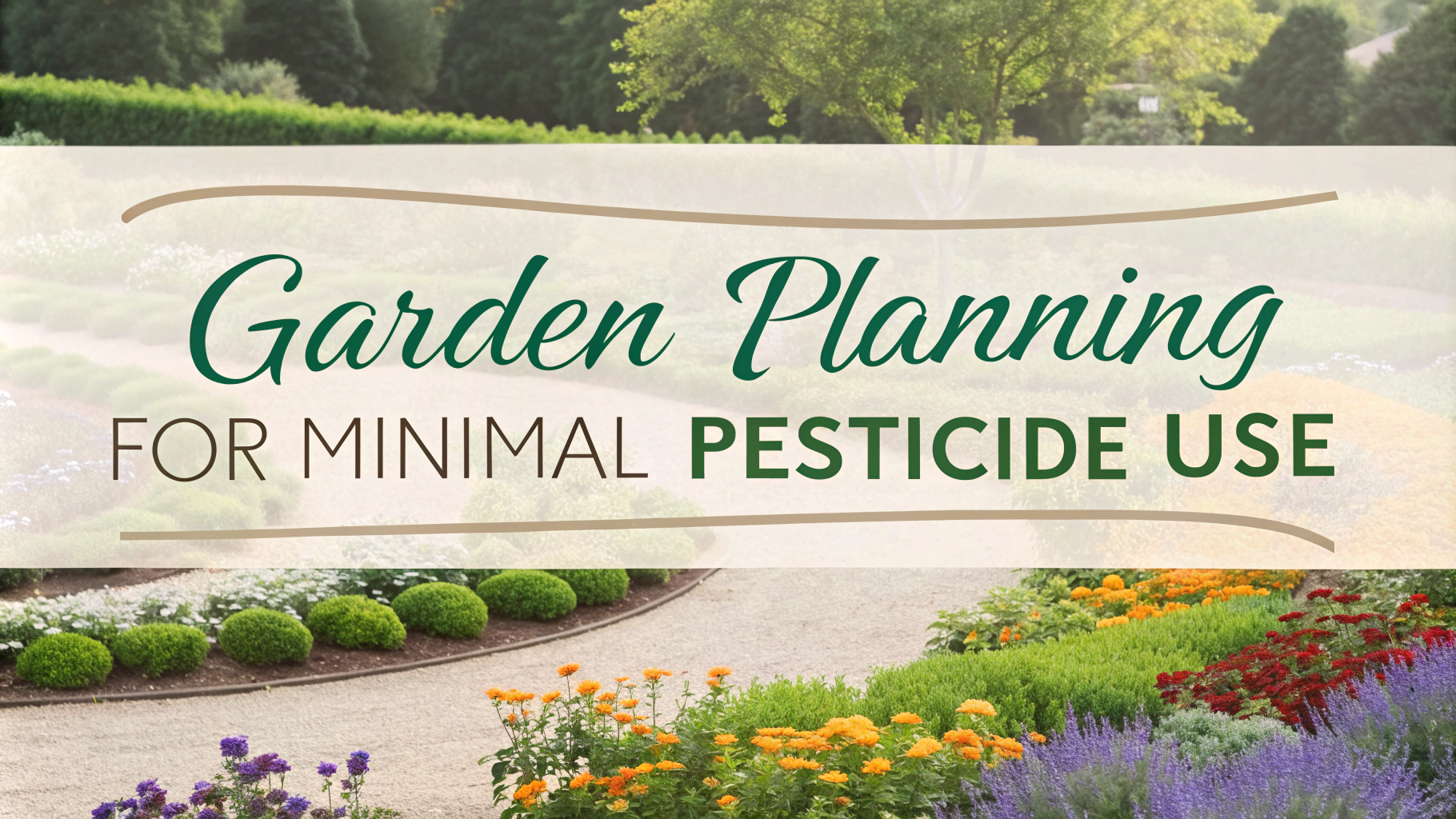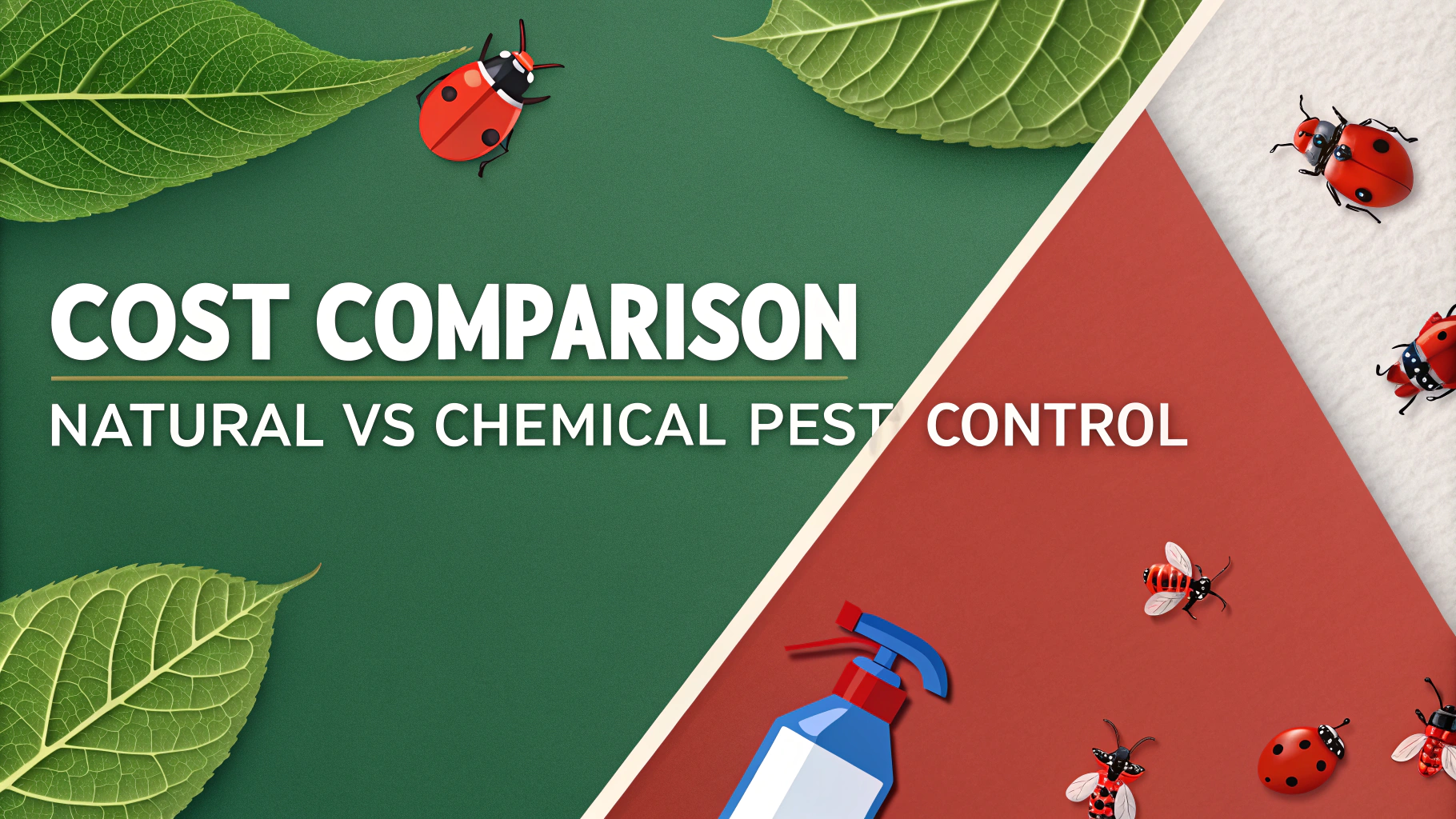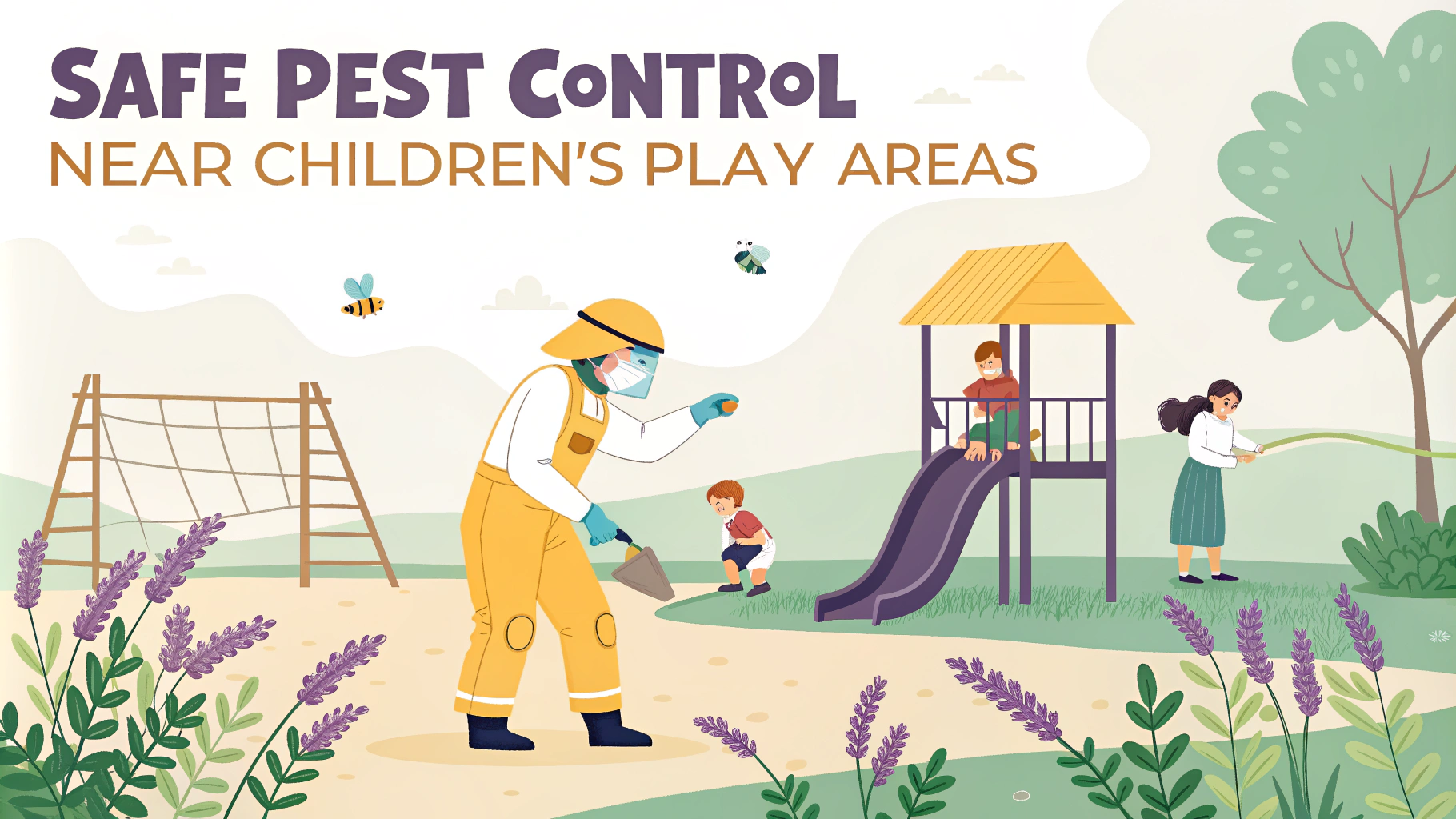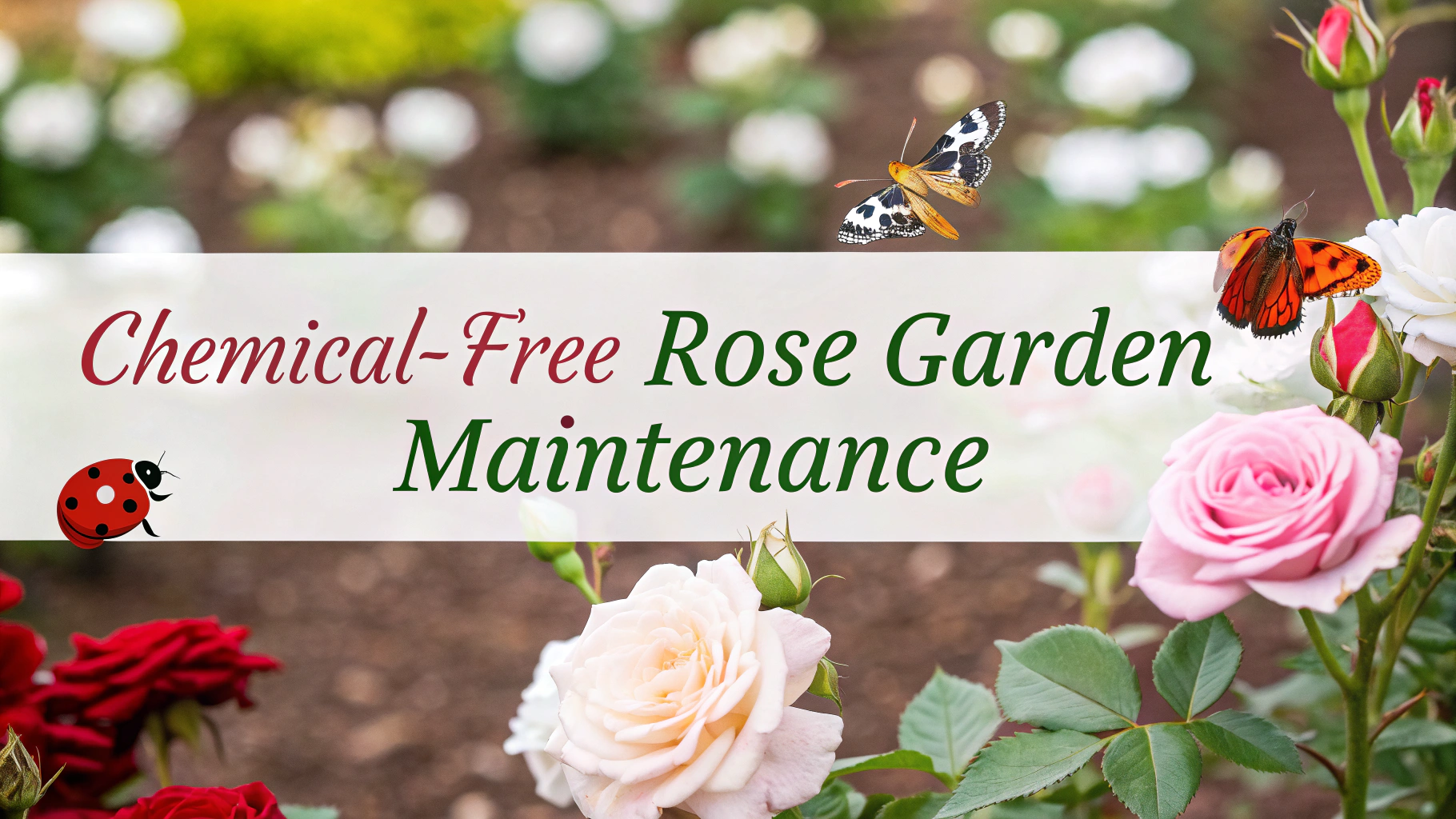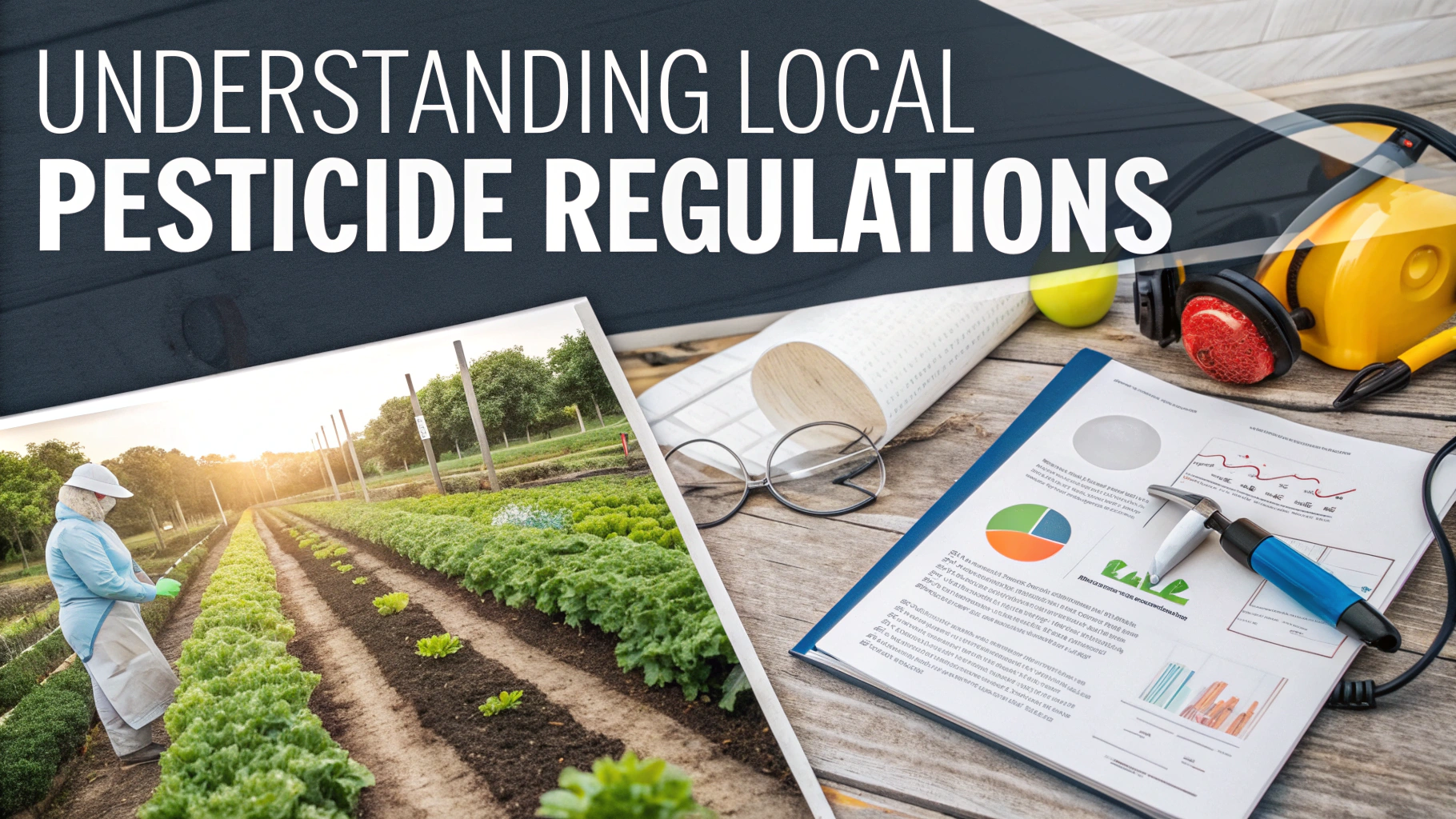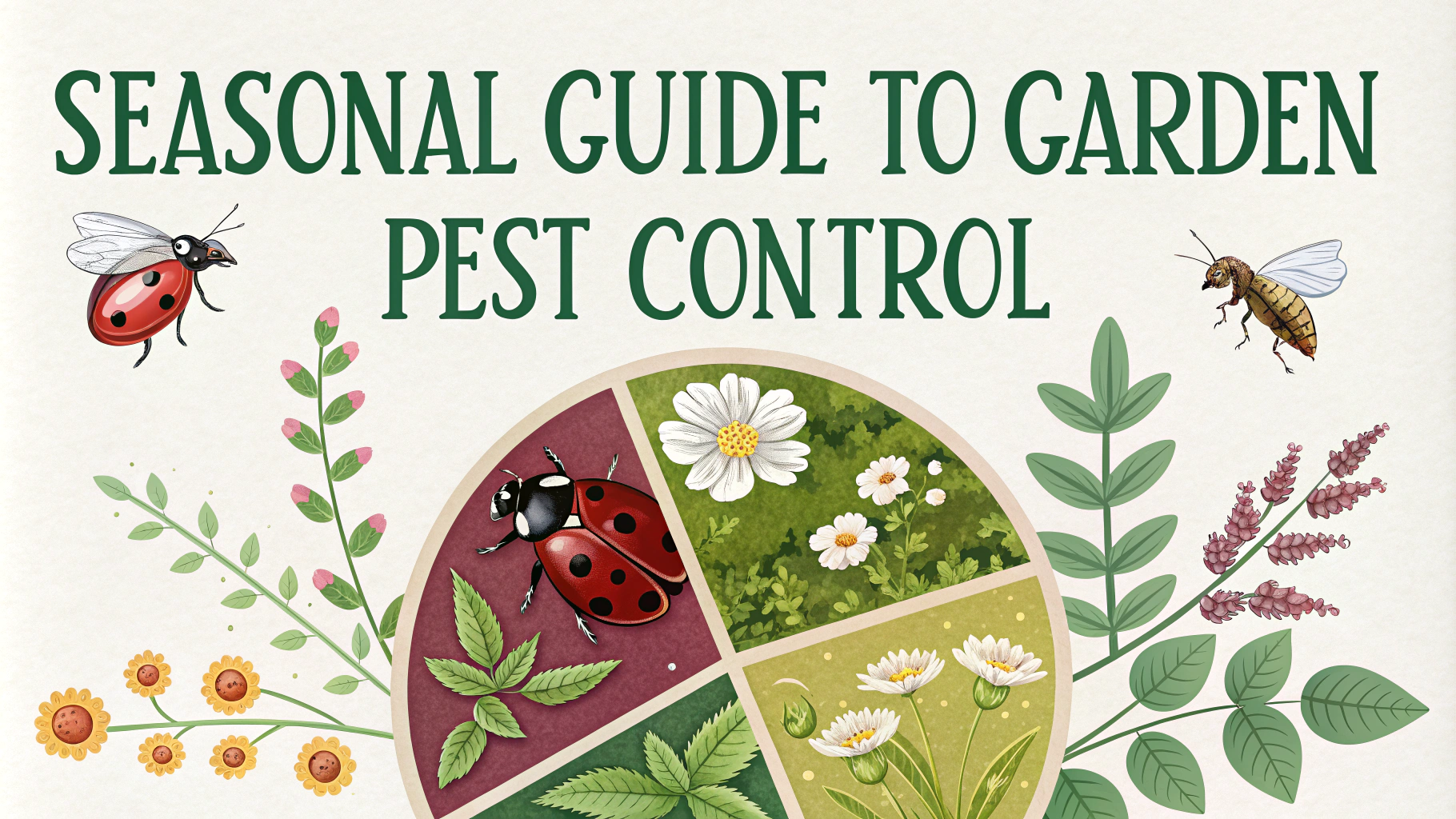Gardeners face ongoing battles with pests that can damage or destroy plants, but natural solutions offer effective control without harmful chemicals.
Common Garden Pests
- Aphids – Small sap-sucking insects that cluster on new growth
- Slugs and Snails – Mollusks that feed on leaves and seedlings
- Japanese Beetles – Metallic beetles that skeletonize leaves
- Tomato Hornworms – Large green caterpillars that strip tomato plants
- Spider Mites – Tiny arachnids that cause stippled leaves
Natural Pest Control Solutions
Physical Barriers
- Copper tape around beds (deters slugs)
- Row covers or netting
- Diatomaceous earth sprinkled around plants
Companion Planting
- Marigolds – repel many insects
- Lavender – deters moths and flies
- Nasturtiums – trap aphids
Homemade Sprays
| Solution | Recipe | Target Pests |
|---|---|---|
| Garlic Spray | 4 cloves garlic + 2 cups water | Aphids, Spider Mites |
| Soap Spray | 1 tbsp liquid soap + 1 quart water | Soft-bodied insects |
| Neem Oil | 2 tsp neem + 1 quart water | Multiple pests |
Beneficial Insects
- Ladybugs (eat aphids)
- Praying mantis (eat various insects)
- Parasitic wasps (control caterpillars)
Purchase beneficial insects from reputable suppliers like Arbico Organics or local garden centers.
Prevention Tips
- Maintain healthy soil through composting
- Remove infected plant material promptly
- Water plants in morning hours
- Keep garden area clean and weed-free
- Rotate crops annually
Monitor your garden regularly to catch pest problems early when they’re easier to control naturally.
Emergency Contact
For severe pest infestations, contact your local extension office – find yours at USDA Extension Office Directory.
Additional Control Methods
Cultural Controls
- Proper plant spacing for airflow
- Choosing resistant varieties
- Timing plantings to avoid peak pest seasons
- Maintaining proper soil pH
Traps and Lures
- Yellow sticky cards for flying insects
- Beer traps for slugs
- Pheromone traps for specific species
- Light traps for night-flying pests
When to Use Chemical Controls
Resort to organic pesticides only when natural methods fail and pest damage becomes severe. Always choose the least toxic option and follow label instructions carefully.
Organic Pesticide Options
- Pyrethrin (flower-based insecticide)
- Bacillus thuringiensis (Bt) for caterpillars
- Spinosad for various insects
- Horticultural oils for overwintering pests
Conclusion
Successful natural pest control requires an integrated approach combining multiple methods. Focus on prevention through healthy garden practices, monitor regularly for early detection, and start with the least harmful control methods first. Remember that some pest presence is normal and even beneficial – the goal is management, not elimination.
Document pest problems and successful solutions in a garden journal to improve your pest management strategy each season. With patience and consistent effort, natural pest control can provide effective protection for your garden while preserving beneficial insects and environmental health.
FAQs
- What are the most common garden pests I should watch out for?
The most common garden pests include aphids, slugs, snails, caterpillars, Japanese beetles, spider mites, whiteflies, squash bugs, cucumber beetles, and tomato hornworms. - How can I naturally deter aphids from my garden?
Aphids can be controlled by planting companion plants like marigolds and nasturtiums, spraying plants with a mixture of neem oil and water, or introducing beneficial insects like ladybugs and lacewings. - What’s an effective organic solution for controlling slugs and snails?
Slugs and snails can be managed by creating barriers with diatomaceous earth, copper tape, or eggshells, setting beer traps, or handpicking them during evening hours when they’re most active. - How can I protect my plants from caterpillars without using chemical pesticides?
Use Bacillus thuringiensis (Bt), a natural bacteria that only affects caterpillars, install physical barriers like row covers, or plant sacrificial crops to draw caterpillars away from main crops. - What natural methods work best for controlling spider mites?
Spider mites can be controlled by regularly spraying plants with strong jets of water, using insecticidal soaps, introducing predatory mites, or applying neem oil solutions. - How can I prevent Japanese beetles from destroying my garden?
Plant resistant species like lantana or marigolds, use row covers during peak beetle season, hand-pick beetles in early morning, or apply milky spore to soil to control grub population. - What companion plants help naturally repel garden pests?
Effective companion plants include marigolds, chrysanthemums, lavender, rosemary, basil, mint, and garlic, which naturally repel various garden pests through their strong scents and chemical properties. - How can I make a natural pest-control spray at home?
Mix 2 tablespoons of neem oil with 1 tablespoon of liquid soap and 1 quart of water, or combine garlic, hot peppers, and water to create an effective natural pest deterrent spray. - What beneficial insects should I attract to my garden for natural pest control?
Beneficial insects include ladybugs, praying mantises, parasitic wasps, ground beetles, green lacewings, and hoverflies, which naturally prey on common garden pests. - How can I protect my vegetable garden from root-damaging pests?
Implement crop rotation, add beneficial nematodes to soil, use physical barriers like cardboard collars around plant stems, and maintain healthy soil with regular composting.
